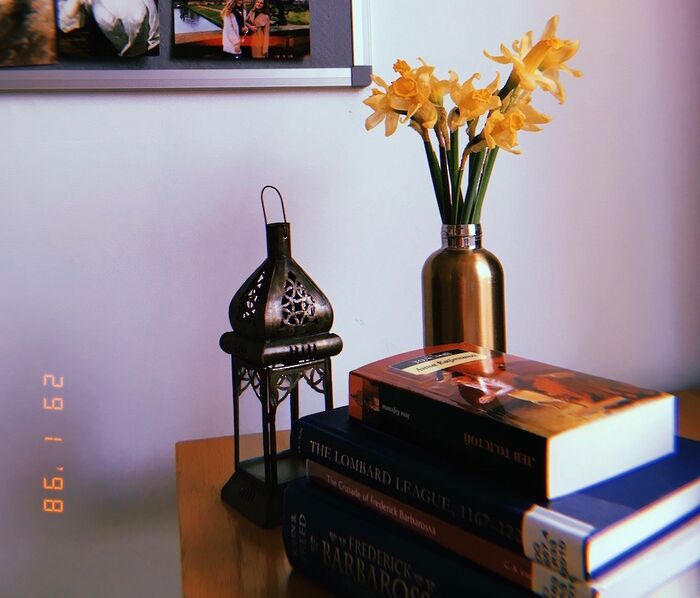Hitting the books: Memoirs of a Dutiful Daughter
In her first read of the term, Anna Mochar delves into the introspective world of Simone de Beauvoir’s Memoirs of a Dutiful Daughter

“Be loved, be admired, be necessary; be somebody.” Simone de Beauvoir’s Memoirs of a Dutiful Daughter is a remarkable inward look by a remarkable woman. Fundamentally a study of identity, this book was no less of a personal experience for me as a reader, than it obviously was for Beauvoir herself. It is a book that charts the trajectory of her childhood and youth, and yet does so in a way that doesn’t make it feel removed from these moments. It seems almost as though she were recording her thoughts, feelings, and experiences at each age in the moment that she felt them – there is an awareness that even while writing up the memoirs of her childhood, she can still go back in her mind and become the same girl, who at the age of five felt a keen fear of the fact that she would grow up into a future, in which she would still be herself, but would also be a different ‘self’, a stranger.
“As Beauvoir’s stream of memories shows, we grow into our present by outgrowing our past”
The book is a flow of memories, not structured into chapters or age brackets. The division into parts stems from more fundamental moments of change in Beauvoir’s childhood. Moving from the apartment she had first developed a consciousness in is, thus, a far more consequential moment to her than passing from one age to another. The book’s structure follows a division that is closely tied to lived experiences, the personal perception of periods in one’s life, and when they come to an end. It is therefore defined by introspection, allowing for the realisation that conscious thought, existential fears, and introspection aren’t things that are exclusive to our teenage years or adulthood. It suggests that reconnecting with the mind of our childhood self might help to acquaint the child within with the stranger we have since become.
“Reading should not be yet another duty I have to fulfill. It should be time I that is spent almost selfishly, time in which I don’t engage with anyone else”
Though this became my first read of the term by coincidence, as my grandmother suggested I might enjoy it and promptly lent me her copy, it came to me at a very pertinent moment. With halfway hall coming up (or having just happened) for second-years, I have been having many conversations regarding the passage of time and the awareness of an end that seems far-off, yet looms closer with every week of term that goes by. It is also a time, in which I and many others have been looking back – even to just a year ago – and noticed how fundamentally different the present ‘self’ feels to who it used to be. As Beauvoir’s stream of memories shows, we grow into our present by outgrowing our past. Beyond the thoughts it sparks, Memoirs of a Dutiful Daughter offers more insight into Beauvoir as a woman, who felt insecure and dull in comparison with her school friend Zaza. It demonstrates how she became a celebrated author and intellectual as a consequence of a collation of experiences, decision, and influences from her earliest childhood onwards. It shows how she came to the point at which “Literature took the place in my life that had once been occupied by religion: it absorbed me entirely, and transfigured my life.” .
This first read of term has also been my first small failure in completing my challenge. It took me two weeks to read, as opposed to the week allotted to it. However, this has shown me just how important it is to be consciously decisive about making time for new aspects of my routine. It is near impossible to simply add to the way I fill my time without changing the way in which I spend my days first. Reading should not be yet another duty I have to fulfill. It should be time spent almost selfishly, time in which I don’t engage with anyone else. I’ve found it easier to allow for this by making small adjustments to my days: I get up a little earlier to have a half hour of reading just after waking up, I’ve indulged in bubble baths to allow myself a quiet evening with some time for reading, I’ve made sure to try and get to bed early enough to not be too exhausted to read at least a few pages before going to sleep.
Many of the questions I had at the outset of this challenge are starting to be answered even now. My routine has become more solidly defined because I’ve found it important to go about reading (and relaxation) fairly systematically. While this approach sounds too precise for true relaxation, it has actually been far calmer than the (aimless) drift of unstructured activities that had defined my days thus far. It will be interesting to see how this develops more long-term, as I resolve to actually read my next book – Leigh Bardugo’s King of Scars, which is a radical departure from Beauvoir – in a week.
 News / Cambridge welcomes UK rejoining the Erasmus scheme20 December 2025
News / Cambridge welcomes UK rejoining the Erasmus scheme20 December 2025 News / CUP announces funding scheme for under-represented academics19 December 2025
News / CUP announces funding scheme for under-represented academics19 December 2025 News / News in Brief: humanoid chatbots, holiday specials, and harmonious scholarships21 December 2025
News / News in Brief: humanoid chatbots, holiday specials, and harmonious scholarships21 December 2025 News / SU reluctantly registers controversial women’s soc18 December 2025
News / SU reluctantly registers controversial women’s soc18 December 2025 News / King appoints Peterhouse chaplain to Westminster Abbey22 December 2025
News / King appoints Peterhouse chaplain to Westminster Abbey22 December 2025









